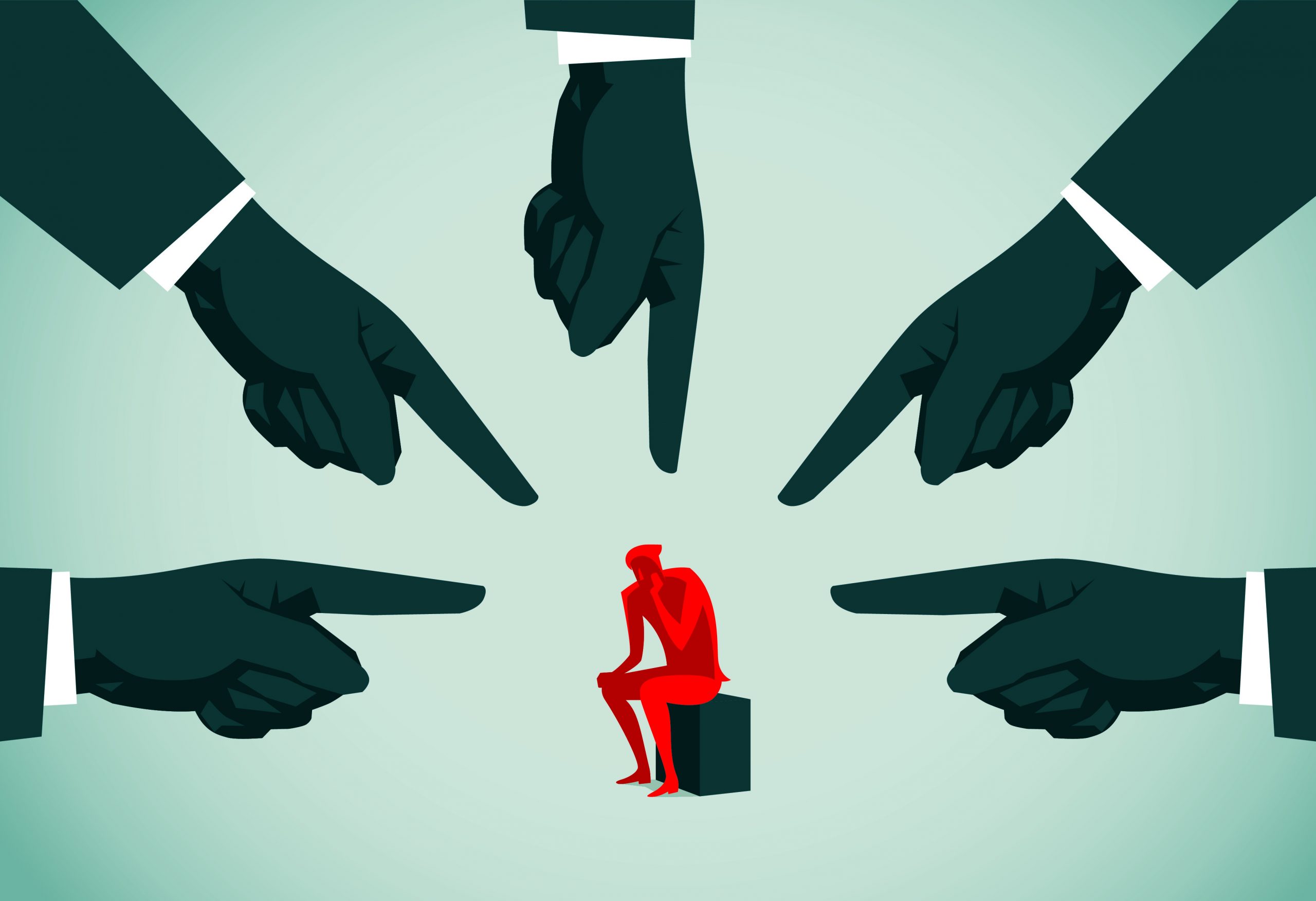The woke know exactly how to break their victims down.
How to Survive Cancellation

A guide for the hexed.
“It is pleasant, when the sea is high and the winds are dashing the waves about, to watch from the shores the struggles of another.”
—Livy
No one, to my knowledge, has yet written a practical guide for surviving through and thriving beyond a “cancellation,” despite how frequent these sorts of things are becoming. I have talked to many people (mostly men) who have faced some form of “cancellation,” and the outline of their experiences have been shockingly similar—enough to suggest the outlines of a guide.
Doubtless, to paraphrase Tolstoy, every cancellation is unhappy in its own way. Still, in almost every case we discussed, offenders were accused of racism, sexism, or false rape accusations—the most serious allegations that can be leveled against one’s character—although they had only violated some unwritten law of “polite society” and were innocent before the written law. What inevitably followed was a kangaroo trial, whether by disciplinary committee, HR department, or media-spun public opinion. The defendant had no opportunity to make his case, and the unappointed jury demanded nothing short of supplication and apology as recourse. Yet, as in an NKVD show trial, admission of guilt does not lessen the sentence—it is a formality, a humiliation ritual prior to a predetermined verdict: social death.
The stories I have heard echo my own. In 2015, I too was “cancelled.” It derailed my life. The least important part of my story is the particulars, so I will spend next to no time on them. If you would like to read about my case—a university suspension for a joke that was considered racist, and years of fallout thereafter—here is what I consider a fair account from FIRE (the Foundation for Individual Rights in Education). And here is a Washington Post clickbait interpretation that is the stuff of “potential employer googling your name” nightmares. For my own account at the time, here is the appeal I wrote to Colorado College.
What’s really important are the mitigation and recovery strategies I developed during my own experience. Despite the uniqueness of each case, these techniques helped people cope pretty well across the board. Here’s what I’ve learned.
A Guide for the Cancelled
Early on, you will face a number of important decisions. Each provides an opportunity for you to exercise agency in the process unfolding around you. Keep in mind: if you do not make these decisions, someone will make them for you. Make your own plan, and stick to it.
What Just Happened?
For the majority of people who have never experienced attention beyond normal social interactions, it is highly disorienting when people you don’t know begin discussing you, your character, and your actions. The dummy they use becomes an idea of you, an abstraction that ceases at an alarming rate to bear any resemblance to who you really are and what actually happened. To guard against this you must solidify, between you and yourself, what happened.
To do this, write an account of all events surrounding your cancellation. In doing so, you articulate what has happened with maximal clarity while the events are still fresh. Later, this will be useful for drawing conclusions as to what it all means.
The scariest part about being tried in the court of public opinion is that you will be given little or no opportunity to make your case. It will feel unfair. It is unfair, and beyond your control. That’s life. Control what you can control. Iacta alea est: the die is cast.
Otherwise you will find that external forces begin to warp your perception of self. It might sound far-fetched if you have not experienced it, but if you are often enough labeled some kind of –ist by the epithet slingers, you might start to believe it yourself. The best guard against this kind of self-perception warp is a clear and articulate statement, early on, of who you are and what happened. Refer back to this, and not to “what’s being said” by others who do not know you, were not present for the events, and in all likelihood do not care about the truth.
This is not to say you must dig in with confidence that you hold the moral high ground. Instead, you must be completely honest with yourself about what happened, right or wrong, and hold to the truth, for others will try to twist it to fit their narratives. This will help you answer the next question:
Will You Apologize?
First and foremost: Do not expect more favorable treatment following an apology. You will receive none. An apology is an optional courtesy you may extend if you have truly wronged someone, but it will have little impact on your ultimate treatment. Only apologize if it will clear your conscience. And that depends on the particulars of your case. Hold to the truth of the matter. Do not apologize for something you did not do. To apologize in the face of a false charge is to plead guilty in the eyes of your accusers.
You may find yourself presented with opportunities to address the situation in the press. But do not be deceived by the illusion that there is such a thing as an unbiased journalist. It is their job to get you to talk. To that end, they will reach out with a smile, they will be friendly, and they may even feign interest in your side of the story. Don’t be naive: like an undergrad with an essay deadline, they already have their introduction and conclusion paragraphs written. They are seeking a couple quotes to selectively insert that support their narrative. The media is not your friend. If you choose not to speak to them, make this a non-negotiable, no-exceptions rule.
But if you do choose to talk, turn down 90% of people who reach out. Even those that offer a helping hand are not unbiased and untainted by narrative—theirs just happens to agree with yours. You must then ask yourself:
Will You Cross the Chasm?
Crossing the Chasm is a metaphor borrowed from the tech adoption cycle that I first heard Coleman Hughes use on a podcast with Jordan Peterson. There is a chasm between embracing controversy successfully and becoming an ignominious culture-war martyr. Will you distance yourself from the incident completely? Or embrace it? To do neither is to get the worst of both.
I still remember the pleas from my own sympathetic reporters: “These people are trying to ruin your life. It’s terrible, and it’s wrong. I cannot stress enough how sorry I am Thaddeus…. please let me know if there is anything I can do. If you give the word I’m thinking thermonuclear war on Colorado College. I want to put you on the front page of Breitbart. I can get you on FOX…. Let me talk to your parents.” I was sitting among my half-packed things at Colorado College, where I had been given three days to vacate the premises. There was deep and, I maintain to this day, genuine concern in Milo’s voice as he said this.
But ultimately I turned down Milo, and Breitbart, and Montel Williams on FOX. I felt I’d brought so much unwanted attention to my family and myself that I should just disappear from the world. I wanted to die. While I refuse to regret things in the past I can’t change, with hindsight I realize I chose the worst possible media strategy. I trusted journalists early on and gave a few statements which later appeared in butchered and grossly unfavorable form, then I turned down Big Right media. I got the worst of both worlds and ensured myself exclusively negative coverage. The only support I accepted, which was a lifeline, was from FIRE.
Crossing the Chasm is ultimately about what kind of life you want after all the hubbub dies down. Example: If you are, by your own account, falsely accused of racism, you can appear on Fox and in Breitbart, or not. Keep in mind, if you go all-in joining a side, there is no going back. Your online history will be tied to any major brand you choose to accept support from. Choose no side, and you will end up sideless, perhaps with only negative coverage. Think carefully before batting away hands that are extended to you in support. They will only be offered once.
Who Will Stand With You?
You need to think not just about your public image, but about your personal life. A cancellation controversy will burn significant social deadwood out of your life. Rest assured, the group that will stay with you will do so by choice, with no work on your part. You shouldn’t have to call your family or closest friends to say “What they say about me isn’t true! Please continue to associate with me!” That said, there will be specific people you can either try to bring along, or lose from your life.
First, identify or list those in your life who could go either way. Then ask: Would you invite them to your wedding? Would they show up to your funeral? These are the relationships that really matter. Looking at your list, ask whether each person is worth working to bring through the filter? For Yes’s, what is the next practical step to bring them along in your life? You do not need to supplicate yourself as damage control. If you’re worried about what someone might have heard, reach out to them in a normal, authentic manner to talk about it.
The upside to this Great Filter is that it will burn a lot of fat off your life. Acquaintances and connections that were never bound to amount to anything will disappear. See this as a blessing! Most people must wait for a life-or-death tragedy (or at least a moving day) to learn who their real friends are!
Above all, in every sphere, remember: Your life is not over. You must decide from Day 1 that this will not break you. Write that down. Internalize it. To treat this as the end is to let “them” win. Seek opportunities for growth at every turn—they exist! And remember that life not only goes on beyond cancellation: it can be quite good.
This piece started as a letter to a friend experiencing cancellation. I hope it helps you. Answer the questions, form them into a plan of action—and if you have questions or need advice, please reach out to me on Twitter: @ThadAscendent. The ranks of the cancelled are growing: there are a lot of us out there, and more every day. One day we will find that we are stronger than our enemies.
The American Mind presents a range of perspectives. Views are writers’ own and do not necessarily represent those of The Claremont Institute.
The American Mind is a publication of the Claremont Institute, a non-profit 501(c)(3) organization, dedicated to restoring the principles of the American Founding to their rightful, preeminent authority in our national life. Interested in supporting our work? Gifts to the Claremont Institute are tax-deductible.
Wherever, however, don’t back down.
Some things can’t be taken away.
Fear not those who can destroy the body.
Republicans should defend ordinary Americans, not affluent literati.
Everything we do can be recorded. What now?






